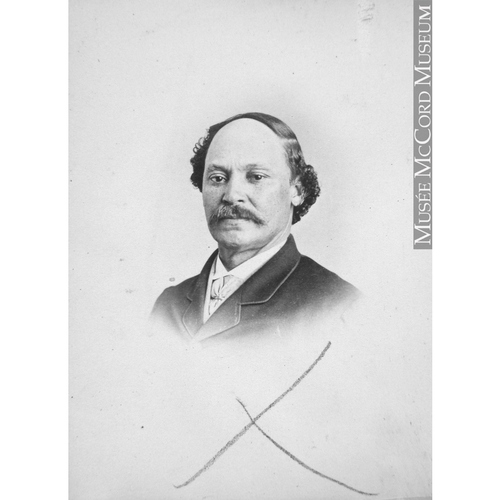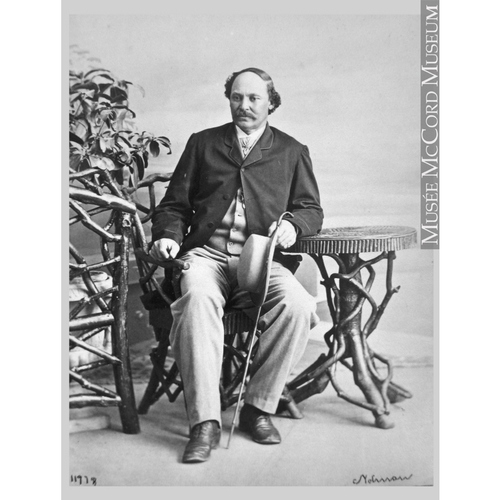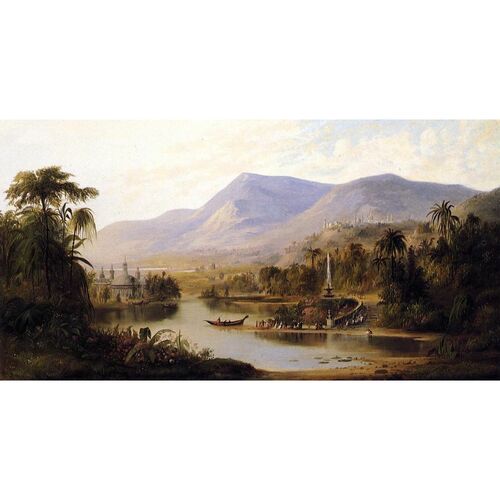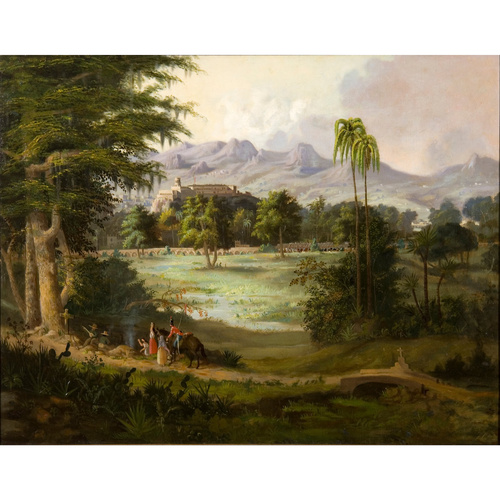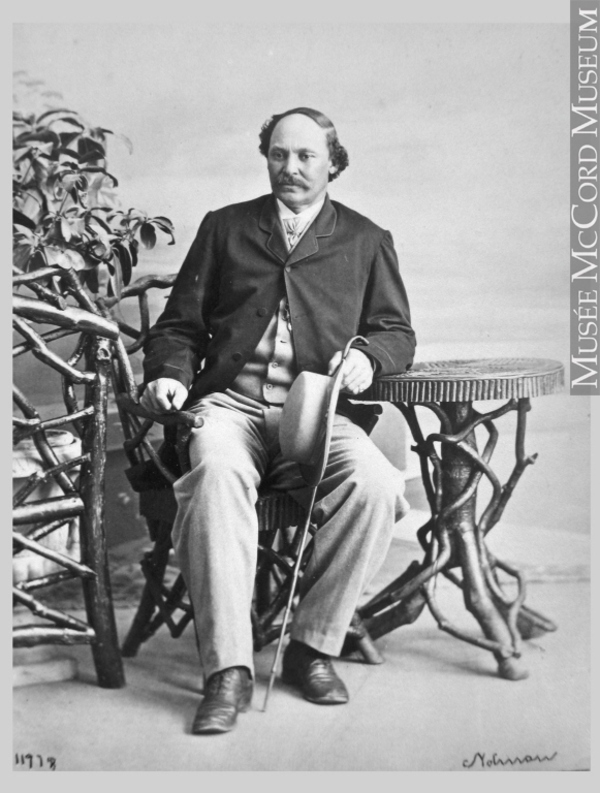
Source: Link
DUNCANSON, ROBERT STUART, artist; b. in 1817 or 1822 in New York State of a Scottish-Canadian father and Negro mother; d. on 21 Dec. 1872 in Detroit, Mich., leaving a wife.
Robert Stuart Duncanson, who was given at least a primary school education by his father, spent his childhood in Montreal. He was sent abroad to study by the Anti-Slavery Society. In 1842 he joined his mother in Cincinnati, working as a daguerreotypist, and there also painted and exhibited some works. Duncanson went to Europe in 1853 for the customary tour of art centres in Italy, France, and England, in the company of William Sonntag, a painter of the Hudson River school. He returned the following year: “I was disgusted with our Artists in Europe. They were mere copyists.” He was living in Montreal in 1861 (and possibly earlier), but went abroad late in 1861 or 1862, spending much of his time in Scotland; he was evidently greeted with enthusiasm abroad. Two of his landscapes in oil, “The Lotus Eaters” and “Chaudière Falls,” were in the Canadian display at the Dublin exhibition, 1865. The date of his return to America is unknown. It seems probable that he again spent some time in Montreal and associated with artists connected with William Notman*’s photographic studios. He was in Detroit from 1871 until his death. In Detroit he exhibited with considerable success, one of his best known canvases, “Ellen’s Isle, Loch Katrine,” going into the possession of Charles Sumner, a prominent abolitionist senator. Before his death, Duncanson suffered a mental breakdown.
The subject-matter of Duncanson’s paintings was varied. His earlier works included portraits of leading citizens of Cincinnati and Detroit, and genre paintings. Later he had affinities with the romantic realists of the Midwest who were linked with the Hudson River school of landscape painting. Noteworthy among his landscapes in this manner were murals commissioned by Nicholas Longworth I for his home in Cincinnati (now the Taft Museum). Exotic subjects with lakes and palm trees appear in his canvases. He was most eclectic in his later years. Among his works are a number of Canadian landscapes showing scenes of autumn and of winter snow somewhat in the manner of Cornelius Krieghoff. His painting is represented in the collection of the Montreal Museum of Fine Arts as well as in American galleries.
Canada, an encyclopædia, IV, 357. G. C. Groce and D. H. Wallace, The New York Historical Society’s dictionary of artists in America, 1564–1860 (New Haven, 1957). J. R. Harper, Early painters and engravers in Canada (Toronto, [1971]), 98. The Negro in art; a pictorial record of the Negro artist and of the Negro theme in art, ed. A. L. Locke (Washington, 1940). Ten Afro-American artists of the nineteenth century, an exhibition commemorating the centennial of Howard University (Washington, 1967). A. S. Cavalla, “Uncle Tom and Little Eva, a painting by Robert S. Duncanson,” Detroit Institute of Arts, Bull., 30 (1950–51), 21–25. E. G. Porter, “Robert S. Duncanson, midwestern romantic-realist,” Art in America; an illustrated magazine (New York), XXXIX (Oct. 1951), 99–154.
Cite This Article
J. Russell Harper, “DUNCANSON, ROBERT STUART,” in Dictionary of Canadian Biography, vol. 10, University of Toronto/Université Laval, 2003–, accessed December 19, 2025, https://www.biographi.ca/en/bio/duncanson_robert_stuart_10E.html.
The citation above shows the format for footnotes and endnotes according to the Chicago manual of style (16th edition). Information to be used in other citation formats:
| Permalink: | https://www.biographi.ca/en/bio/duncanson_robert_stuart_10E.html |
| Author of Article: | J. Russell Harper |
| Title of Article: | DUNCANSON, ROBERT STUART |
| Publication Name: | Dictionary of Canadian Biography, vol. 10 |
| Publisher: | University of Toronto/Université Laval |
| Year of publication: | 1972 |
| Year of revision: | 1972 |
| Access Date: | December 19, 2025 |


